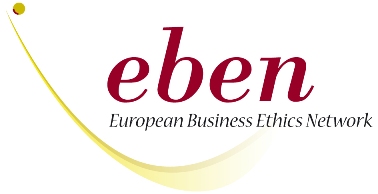23 junio, 2020. –Long ago, in another era—in January, in fact—corporate leaders were vying to outdo each other with headline-grabbing targets on reducing emissions, eliminating waste and sourcing responsibly. Microsoft said it would go “carbon-negative” by 2030, one-upping Amazon, which had merely promised to be carbon-neutral by 2040. “Stakeholder capitalism” was the talk of Davos.
But then the pandemic hit. Have harsh economic realities derailed those green pledges and grand plans? Sustainability leaders we spoke to say quite the opposite.
- Unilever decided against delaying the announcement of a new environmental strategy, says Rebecca Marmot, chief sustainability officer at the consumer-goods giant. Last week the company ploughed ahead with new commitments, including a deforestation-free supply chain by 2023 and net-zero emissions for all its products by 2039. Now is just the right time, she insists.
- “We are as committed as before,” echoes Pia Heidenmark Cook, chief sustainability officer at IKEA. The Swedish furniture retailer, currently responsible for 0.1% of the world’s greenhouse-gas emissions, recently committed to net-zero emissions by 2030 and to designing products according to the principles of a circular economy. “Going through our climate plans and looking at the budget for next year, really we’re going all in as before and I would say even faster,” she says.
- “We’ve not seen any pullback,” says Diane Holdorf, managing director of food and nature at the World Business Council for Sustainable Development (WBCSD), a consortium of purpose-led businesses. Instead, she says, companies are responding to the crisis by putting “even more pressure on ensuring that you are sustainable from a nature, climate and societal standpoint”.
Environmental, social and governance (ESG) activities are less likely to get axed than other initiatives as firms cut costs, according to a recent survey of CFOs by PricewaterhouseCoopers. As companies defer or cancel investments in office buildings, new hires and IT projects, just 10% of CFOs who are making cuts said ESG projects were facing the chop.
Green and purpose-led companies are also holding up better in the covid era. Share prices of companies with higher ESG ratings have outperformed others since the onset of the pandemic, dropping less far and recovering more quickly than the rest of the market. Similarly, WBCSD’s analysis showed that its members outperformed the market. This seems to be the result of better governance and a good grasp of supply chains.
- Investors are looking at companies’ sustainability credentials as a measure of resilience and adaptability amid the crisis, and for longer-term growth prospects, suggests Ms Marmot.
- Firms that have paid close attention to their supply chains for sustainability reasons can respond more quickly in a crisis. “They can lean into their existing governance systems and push through change with relative speed and agility,” says Ms Holdorf. “All the work we’ve done on sustainable sourcing means we have set up supply chains with a pretty good continuity of supply,” says Ms Marmot.
But the corporate sustainability agenda is evolving. Most notable is a shift in attention to social responsibility—particularly over how companies treat front-line employees and suppliers when it comes to fair pay and safe working conditions. Sustainability leaders we spoke to expect this to outlast the pandemic.
- “The biggest shift is in how much companies are putting a focus on or accelerating the social-equity aspects,” says Ms Holdorf. “All the people aspects of our work have accelerated due to covid,” agrees Ms Heidenmark Cook.
Companies can expect to come under greater pressure from consumers and shareholders on social issues, ensuring that employees and suppliers are treated fairly. New figures from Edelman’s Trust Barometer indicate that the way a company treats its employees and suppliers is already influencing purchasing behaviour.
- One-third of consumers have stopped using a brand that they perceived as not acting appropriately in response to the crisis, and 71% say that if they perceive that a brand is putting profits over people, they will lose trust in that brand for ever. Half of those surveyed by Edelman believe that businesses are generally doing badly or completely failing to put people before profits.
Boosting social responsibility will be a challenge for some businesses. One reason the “S” in ESG has typically been overshadowed by environmental and governance priorities is that social impact is hard to measure, and encompasses a wide range of concerns, from working conditions deep in the supply chain to tax avoidance. Yet the experience of covid-19 has brought with it opportunities to accelerate progress towards sustainability objectives, say experts.
- The pandemic has spurred trends that could help reduce emissions, from remote working at the expense of business trips to a push for more localised supply chains and an imperative to “make where you sell”.
- Co-operation between companies and governments in the crisis could also lead to new partnerships. Firms have retooled factories to supply PPE or medical equipment, for instance, or coordinated community aid initiatives. “I hope that we can see stronger collaboration between companies and governments, and NGOs and the public, and ultimately learn from the drastic actions that we took in the last few months,” says Ms Heidenmark Cook.
- Companies should seize the opportunity to build sustainability through the new practices and operating models that emerge from the crisis, says Ms Holdorf. When reassessing their supply-chains in light of covid-19 disruptions, for instance, businesses could consider emissions and responsible sourcing at the same time.
The wider sense of collective action against the covid crisis has also provided hope in a larger fight: that against climate change. “Covid showed us that we can make drastic change when we need to,” says Ms Marmot. A crisis, it seems, really can be an opportunity.
Publicado por The Economist

